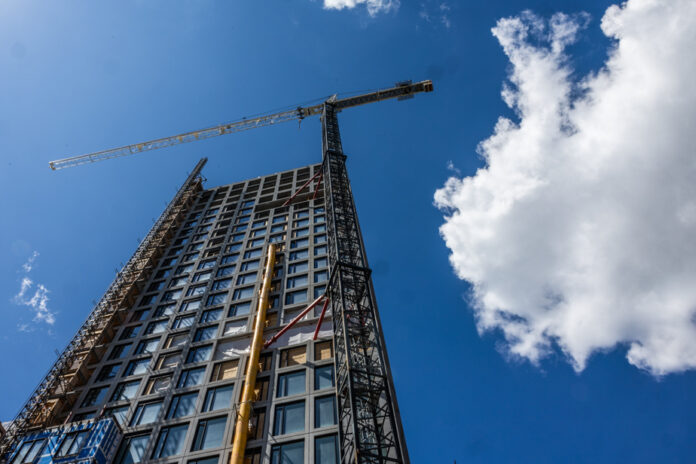Real estate developers will build in Ontario rather than here if Quebec does not copy the federal government regarding the full reimbursement of sales taxes on new rental housing.
This is the message sent by the real estate industry to the Quebec Ministry of Finance as part of the consultations ahead of the financial update scheduled for November 7.
The Urban Development Institute of Quebec (IDU), a lobby for real estate developers, met with La Presse on Monday to make its expectations known.
Until now, the Legault government has refused to follow the example of the federal government and fully reimburse the QST collected on new housing. On the other hand, four provinces, including Ontario, British Columbia and Nova Scotia, have done so.
“The reimbursement of the QST is our main request,” says Isabelle Melançon, CEO of the IDU.
“We are going to go elsewhere to build apartments,” says the president of the Mach Group, Vincent Chiara, who accompanied Ms. Melançon for the occasion. We’re going to go to Toronto. We also have a project that is about to be under construction in Halifax. »
“We have thousands of new housing units that are on ice in Quebec,” he continues. In the Quartier des Lumières [on the site of the former Maison de Radio-Canada, in the southeast of downtown Montreal, built in partnership with Devimco], everything is delayed possibly for two years. Mathematically, the project no longer holds water. »
In downtown Montreal, the maximum rent level is $3 per square foot, or $1,500 per month for a small unit of 500 square feet. In Toronto and Vancouver, the maximum rent ranges between $4 and $4.50 per square foot, Chiara says, giving builders more leeway.
According to the most recent figures available, we are heading towards 37,000 housing starts in 2023 in Quebec, the worst year since 2001.
If the market conditions experienced this fall become the norm in the coming months, the IDU expects the number of housing starts to continue to plummet in 2024.
The comparison with Ontario may indeed be painful, since the Ford government has adopted a series of measures to stimulate construction, some of which affect the speed with which cities must issue permits in order to avoid paying a penalty . “In Quebec, it takes 12 to 18 months to get a permit,” criticizes Mr. Chiara.
The businessman agrees that the 100% QST refund will probably not be enough on its own to revive residential construction. “But it’s sure to help,” he believes.
For its part, the Association of Construction and Housing Professionals of Quebec (APCHQ) forecasts an increase in housing starts to 41,000 in 2024. The scenario of economist Paul Cardinal is based on a slight drop in rates of interest from spring 2024.
“With the reforms that will be in place, it will create an environment that will become more interesting in Ontario and British Columbia,” he says. The APCHQ adds its voice to that of the IDU on the subject of QST reimbursement.
The measure is not unanimous, however. As recently as Monday, La Presse published an open letter from Option consommateurs in which the organization opposed the costly measure because, according to its signatories, it does not provide a solution to the “affordability crisis “.
More on November 7 during Minister Eric Girard’s economic update.















